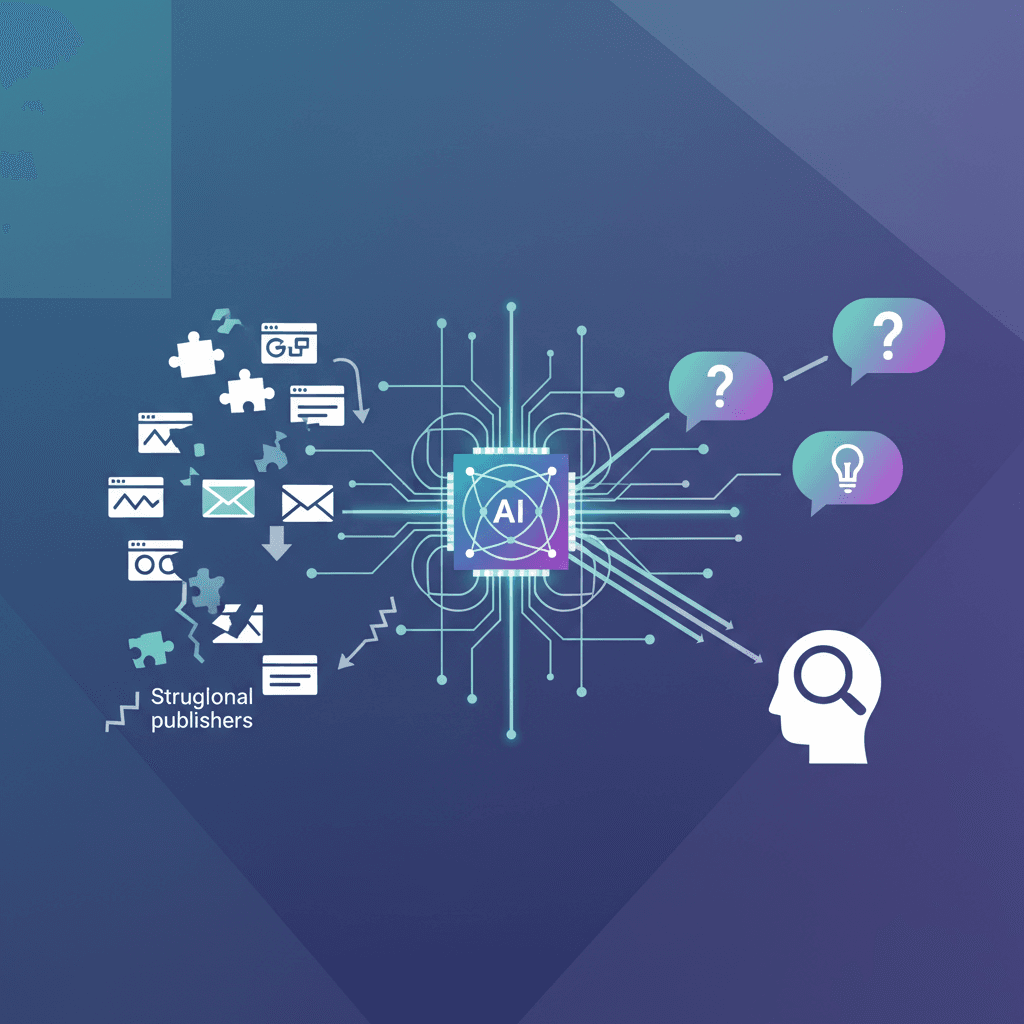Google Transforms Search: AI Mode Default Becomes Answer Engine
Google's AI default reshapes search, while its lawyers argue the "open web" is in rapid decline, imperiling publishers.
September 7, 2025

Google is poised to fundamentally reshape the internet's front page by making its conversational "AI Mode" the new default for its search engine, a move confirmed by company insiders that marks the most significant overhaul of the platform in over a decade. This strategic pivot away from the traditional list of blue links towards AI-generated summaries and direct answers comes at a critical juncture, as Google's own lawyers argue in federal court that the "open web" is already in a state of "rapid decline." The convergence of these two developments signals a transformative moment for how information is accessed and monetized online, presenting what many publishers are calling an existential threat to their survival.
The transition to an AI-first search experience has been methodical. It began with limited public experiments in Search Labs under the name Search Generative Experience (SGE), which has since evolved into the more integrated AI Overviews and the distinct AI Mode tab.[1][2] A lead product manager for Google's AI products, Logan Kilpatrick, recently indicated that AI Mode will become the default "soon," confirming long-held speculation.[3][4] This new interface functions less like a directory and more like a conversational partner, synthesizing information from multiple sources to provide a single, consolidated answer at the top of the page.[5][6] The impetus for this change is twofold: fierce competition from AI-native platforms like ChatGPT and a noted shift in user behavior toward asking longer, more complex questions.[4][7] By providing direct answers, Google aims to create a more efficient and satisfying user experience, keeping users within its ecosystem and defending its dominance as the primary gateway to online information.[8]
Simultaneously, a starkly different narrative is unfolding in a Virginia courtroom, where Google is fighting a Justice Department antitrust lawsuit aimed at breaking up its powerful advertising technology business. In a court filing, the company's lawyers contended that forcing a divestiture would "accelerate" the decline of the open web's display advertising market.[9] Google's legal team defined the "open web" as traditional websites that rely on display ads for revenue, a model they claim is being rapidly supplanted by "walled gardens" such as social media platforms, mobile apps, connected TV, and even AI chatbots.[9][10] To support this claim, Google cited internal data showing that display advertising on the open web had plummeted from 40 percent of its ad impressions in 2019 to just 11 percent by January 2025.[9] This argument paints a picture of an internet ecosystem already undergoing a massive transformation, suggesting Google's pivot to AI search is not just a strategic choice but a necessary reaction to market forces that are eroding the foundation of its original search model.
For the publishers and content creators who form the backbone of the web, this transition is fraught with peril. The core of their business model has been a symbiotic relationship with Google: they create content, Google indexes it and sends them traffic, and they monetize that traffic through advertising.[8][11] AI Mode and AI Overviews threaten to sever this connection by satisfying user queries directly on the search results page, effectively eliminating the need to click through to the source websites.[12] This phenomenon of "zero-click" searches is at the heart of the crisis. Numerous publishers are reporting devastating traffic losses, with some news organizations seeing declines of 25% to 30%, and specific content verticals experiencing drops as high as 89%.[13][12] This directly impacts revenue, with one industry analysis estimating that widespread AI adoption could erase $10 billion in annual advertising income as users bypass traditional site visits.[12] Google has pushed back against these claims, with Head of Search Liz Reid asserting that AI features are driving more engagement and "quality clicks."[14][13] However, independent research from organizations like the Pew Research Center has shown that users are significantly less likely to click on a traditional link when an AI summary is present, corroborating the fears of publishers.[14]
In conclusion, the impending shift to AI Mode as the default for Google Search represents a fundamental rewiring of the flow of information and revenue on the internet. Google is transforming itself from a search engine into an answer engine, a move it implicitly justifies by arguing that the open web it once championed is already fading.[9][12] While this may offer users a more streamlined and conversational interface, it risks dismantling the economic models that have sustained a diverse ecosystem of online content for decades. Publishers are now faced with a stark choice: adapt by developing new revenue streams like subscriptions and direct licensing deals with AI companies, or face a future of dwindling relevance and revenue.[5][11] The convenience of an AI-powered answer may come at the profound cost of the very sources that make those answers possible, leaving the long-term health and diversity of the digital public square hanging in the balance.